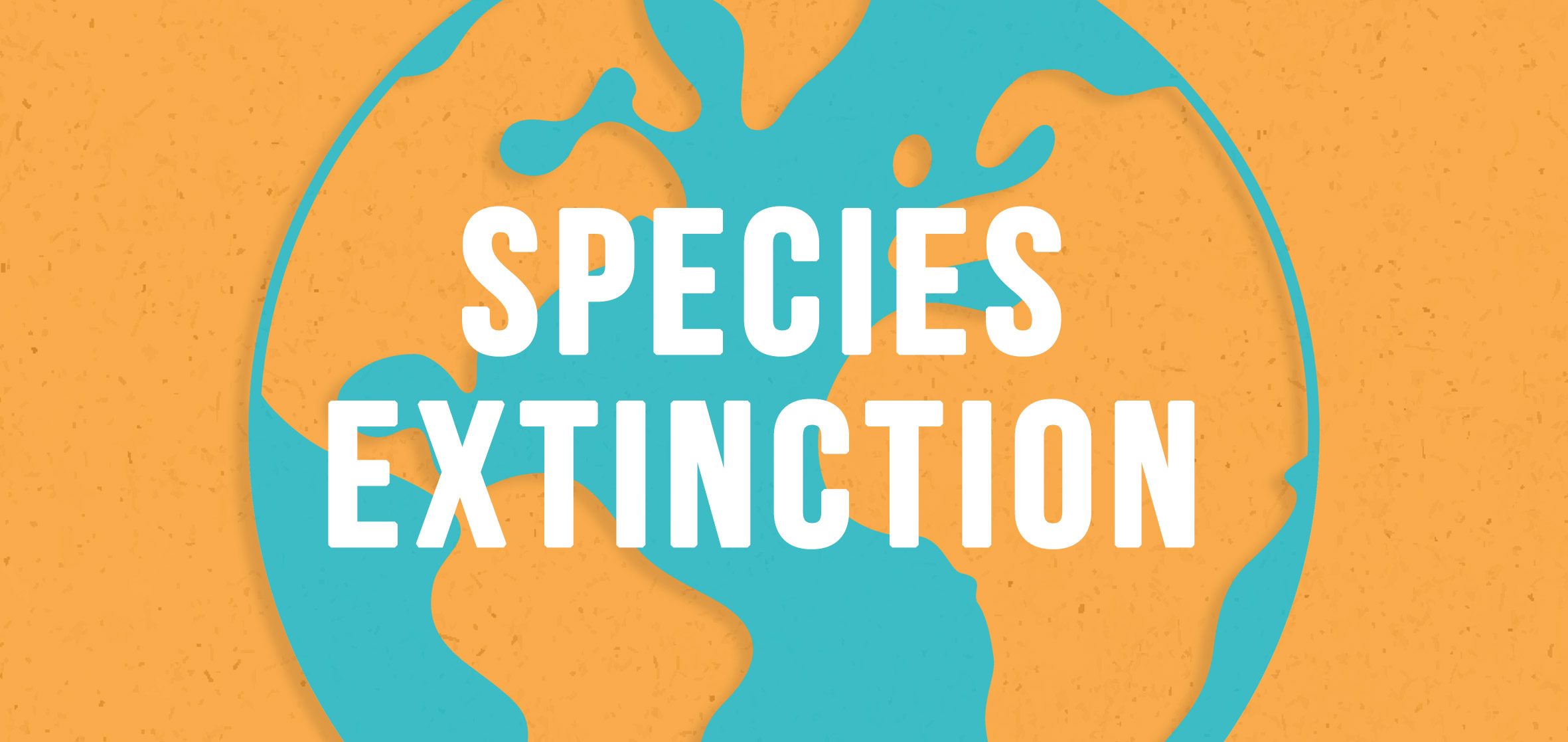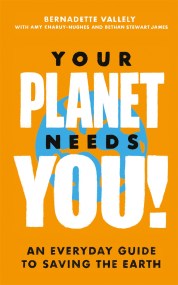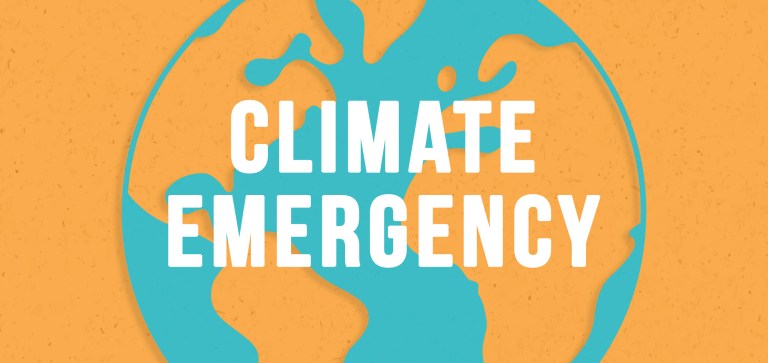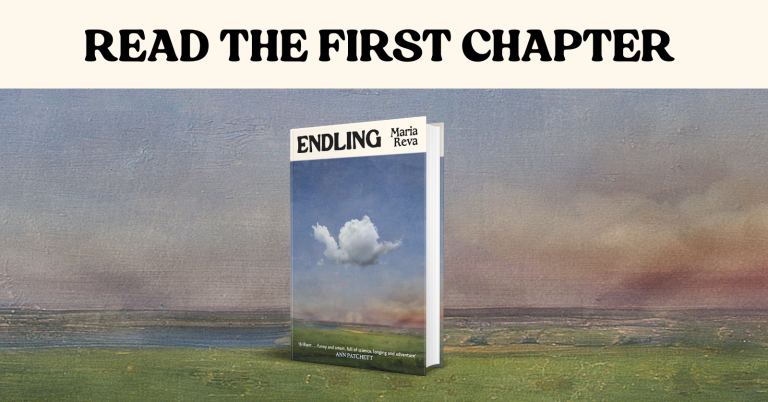Species Extinction
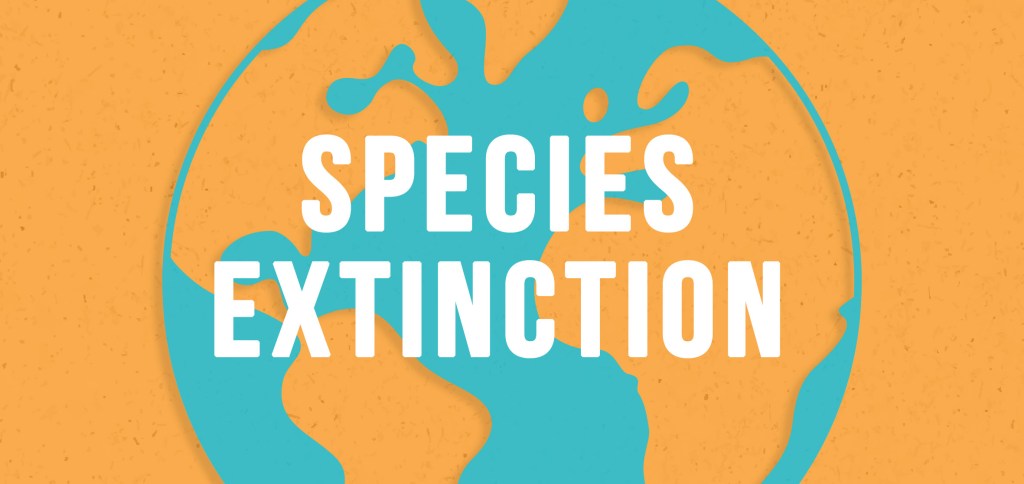
What can we do to curb species extinction?
The following is an extract from Your Planet Needs You! by Bernadette Vallely, Amy Charuy-Hughes and Bethan Stewart James; three women from different generations who came together to create an informative and practical guide to the issues facing our planet and the steps YOU can take to make our future greener, fairer and more sustainable.
SPECIES EXTINCTION
At least 2,000 animal species are becoming extinct every year for certain. This number has increased dramatically. Some scientists say that we have underestimated this count and if there are 100 million species on earth, then around 100,000 species are becoming extinct each year.
The number of animal, bird, fish and insect species that have become extinct due to the encroaching climate problems around the world has been growing exponentially. From deforestation to industrial pollution, so many human actions have affected other living species.
We are killing animals on a massive scale every single day. Our lifestyle, our use of resources, and creating businesses around the death of animals means that we rely on animal products for our survival just as we did thousands of years ago.
Our society, however, has created ingenious and dastardly ways to murder animals. Humans kill for ‘pleasure’ when people go hunting for wild game. Emotionally, we kill from a place of fear when we swat a bee. We kill for food when we eat cows stunned in an abattoir. Tourists buy trinkets at the beachfront, little knowing that they are buying an endangered species. From tiny daily actions to manufacturing and government policies, animals of all sizes are under attack.
The numbers of animals, insects and other creatures killed by mass clearing of forests is a crisis. Forests that have existed for thousands of years in South America have been cleared in just one generation to enable soy farming to feed cattle for the growing market for beef burgers. Forests in countries like Canada have been cleared on a vast scale to chip the trees for pulp and paper. This paper is for advertising and flyers that end up on your doormat. You probably only look at them for a second before throwing them away. These kinds of businesses exacerbate the already stressed ecological conditions and make it difficult for local native species to survive. They lead indirectly and directly to more species extinction.
Food production is also responsible for animal extinctions. Animals and insects of all kinds are sprayed with poisons in fields and hedgerows across Britain and around the world. This is considered by business to be normal. Birds eat the dying insects; they absorb the poisons themselves and die. Their offspring are unable to grow; the numbers of insects and birds drop, field by field, valley by valley. This has been known about for fifty years!
The weather and climate emergency is also directly affecting species numbers and stress levels. According to the University of Sydney, 500 million animals died in the Australian bush fires of 2019 and the beginning of 2020. That included 30 per cent of the koala species – some 8,000 koalas – that were burned to death in the fires in New South Wales. The fires that spread across Australia caused extinctions by wiping out some endangered species and further stressing and endangering others. Scientists say the ecological devastation will be impossible to repair, such was the scale of the damage and the loss of wildlife.
This is an emergency.
When species decline and become extinct we will never see them again. This current age is being called by biologists and scientists the Sixth Mass Extinction and is a direct result of human activity. It really is that serious.
There is some good news. When protection measures are in place animals do survive, and thrive. Because of the Endangered Species Act, sea turtles, which were once in peril, have made a staggering recovery. A whopping 980 per cent increase in numbers has been recorded because a programme protecting turtles was identified and successfully implemented according to the US- based Center for Biological Diversity.
The numbers of humpback whales were declining and thought to be only 450 worldwide in the 1960s. International protection programmes that stopped countries like Japan from killing them have now seen a massive 25,000 increase in numbers according to research by the journal Royal Society Open Science. It took pressure from environmental groups, international laws and determined lawyers and campaigners to make it happen.
What can you do?
We must wake up to the devastation of this loss. How vain is humanity, believing it can replace the bee? Or the earthworm? Or the blue tit or wren? Or a dolphin?
This loss, this emergency, is a tragedy. This loss is over-whelming to the planet. Why are we not weeping? Why do we not read out their names in public with shame and sorrow? Where are the sanctuaries, the noble marble plinths of remembrance with inadequate words of regret?
Call a truce. Decide not to hurt or murder or kill animals any more. Don’t take part. Find love instead. Work to protect, to allow survival. Observe how every day society allows and encourages the killing of animals.
Protect animals.
Buy organic. Don’t buy animal-related products if you can. Join groups that fight for animal rights such as PETA. Join groups that work towards compassion in farming methods. Read this book. We are all interrelated. What kind of life you lead affects the world. Be part of the solution, not the problem.
Hold a funeral to honour all the species that have become extinct. Use the time to reflect and commit to supporting other living species who can’t speak up themselves. What are you going to do? #SixthMassExtinction

